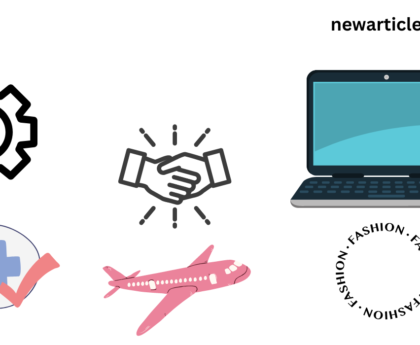In the rapidly evolving landscape of blockchain technology, the emergence of Blockchain-as-a-Service (BaaS) has opened new avenues for businesses to explore decentralized solutions without the intricacies of managing an entire blockchain infrastructure. For entrepreneurs venturing into the world of blockchain, selecting the right BaaS provider, including a reputable blockchain protocol development company, is a crucial decision that can significantly impact the success of their projects. In this comprehensive guide, we will delve into the considerations and criteria that businesses should prioritize when choosing a BaaS provider.
Why Blockchain-as-a-Service Matters
As Blockchain as a Service gains traction, it is essential for businesses, especially Small and Medium Enterprises (SMEs) and startups, to recognize the benefits it can bring to their bottom lines. The article emphasizes the transformative potential of BaaS for SMEs, anticipating a future where blockchain creates systematic value chains for a more robust digital economy.
Key Considerations for Choosing a BaaS Provider
Technological Adaptability
Top-tier BaaS providers should offer frameworks that can seamlessly adapt to the rapidly evolving landscape of blockchain technologies. The article stresses the importance of flexibility, citing the example of Solidity as the preferred language for Ethereum smart contracts and the unpredictable pace of technological evolution, such as the Internet of Things (IoT) and blockchain coming together.
Smart Contracts Integration
Highlighting the uniqueness and transformative nature of smart contracts, the article emphasizes the importance of BaaS platforms including smart contract functionality in their offerings. The ability to enforce terms and conditions automatically and securely is a crucial feature that businesses should look for in a BaaS provider.
Identity Access Management (IAM)
Security is a paramount concern in the blockchain space, and the article discusses the role of IAM platforms in managing digital identities. While acknowledging the inherent security of blockchain technology, it advocates for BaaS platforms to integrate robust IAM systems to control access rights and prevent unauthorized access to sensitive information.
Scalability and Consensus Mechanism
Scalability is a critical factor for BaaS platforms, especially considering the potential increase in the number of nodes as a business expands. The article recommends shortlisting BaaS providers that utilize Identity-based consensus mechanisms to address scalability issues associated with Proof of Stake or Proof of Work protocols.
Contingency Planning
The article advises businesses to consider contingency plans when selecting a BaaS provider, emphasizing the importance of having exit strategies in case of a future need to switch providers. This forward-thinking approach ensures flexibility and minimizes potential disruptions to operations.
Exploring the Top BaaS Providers:
Microsoft Azure
Microsoft Azure is lauded for its ease of use and high technological sophistication. The article discusses its flagship platform, Azure Blockchain Workbench (ABW), and its support for various blockchain development platforms, making it a default choice for many customers.
IBM Blockchain
IBM Blockchain, hosted on the IBM cloud, offers flexibility in choosing private, public, or consortium blockchain services. The article highlights the SecureKey Technologies feature, the ability to write smart contracts in popular programming languages, and IBM’s recognition by research entities like Juniper and HFS.
Hewlett Packard BaaS
Hewlett Packard’s Mission Critical Distributed Ledger Technology (MCDLT) is introduced, and its partnership with R3 is discussed. The article mentions the platform’s fault tolerance and its limitation in supporting only the Corda framework.
SAP
SAP’s two dedicated units for blockchain-focused businesses, SAP Cloud Platform Blockchain Services and SAP HANA Blockchain as a Service, are introduced. The article underscores SAP’s support for the Stellar Consensus Protocol and its advantage of being hosted on a third-party cloud.
Amazon
Amazon’s dominance in the BaaS marketplace is highlighted, with a focus on its Amazon Quantum Ledger Database (QLDB) and Amazon Managed Blockchain. The article discusses QLDB’s transparency and immutability and the rapid network installation capability of Amazon Managed Blockchain, supporting various development platforms.
Oracle
Oracle’s addition of the Oracle Blockchain Cloud Service (OBCS) to its suite of BaaS offerings is discussed. The article explores the platform’s features, including rapid provisioning, interoperability with third-party clouds, and automated downtime protection.
Conclusion
As the blog concludes, it reiterates the transformative potential of blockchain technology and the pivotal role that BaaS providers play in realizing this potential. Businesses are encouraged to stay informed about the latest developments in the blockchain space and to leverage BaaS to propel their projects forward. The comprehensive guide serves as a valuable resource for entrepreneurs seeking to navigate the blockchain seas and make informed decisions in selecting the right BaaS provider for their ventures.




